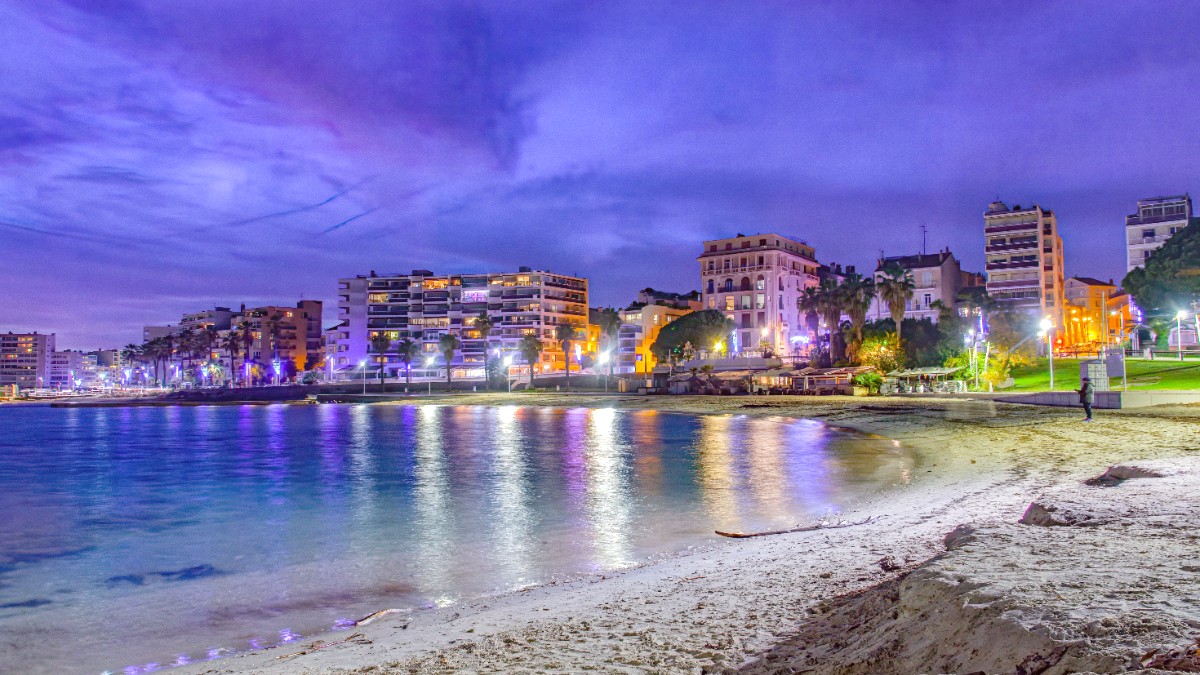
Cote Dazur, France
Toulon sits nestled at the foot of Mont Faron, its grand harbor stretching before it, a natural marvel that has shaped its destiny for centuries. This city serves as the main home for the French Navy, giving it an unique character distinct from its glitzier Riviera neighbors. You feel the history in the Old Town's narrow lanes, smell the fresh produce at the daily market, and hear the gentle lapping of waves at the Mourillon beaches. It is a destination that rewards travelers seeking genuine encounters, beautiful scenery, and delicious regional flavors without the overwhelming crowds found elsewhere.
Toulon provides a genuine French coastal experience. Wander through historic streets, enjoy fresh seafood by the harbor, and visit bustling markets.
Its character is distinct from its glitzier neighbors, offering a strong sense of place and a relaxed atmosphere. The city's daily life moves at a pace that invites lingering and savoring.
Toulon enjoys a prime location on the Mediterranean coast of southeastern France. It sits within the Var department, part of the larger Provence-Alpes-Côte d'Azur region. This position places it firmly in the heart of the French Riviera, yet it retains a character distinct from the more eastern towns like Nice or Cannes.
The city lies at the base of the majestic Mont Faron, a limestone mountain that rises sharply behind the urban area. This mountain acts as a natural barrier, giving a sheltered microclimate. Mont Faron also presents spectacular panoramic views of the city, its sprawling harbor, and the open sea.
Toulon is built around one of Europe's largest natural harbors, known as the Rade de Toulon. This deep, protected bay has been its lifeline for centuries, serving as a naval and commercial port. The harbor's strategic value cannot be overstated; it gives calm waters even when the famous Mistral wind sweeps through the region. This geographical feature directly influences the city’s economy, culture, and daily life.
Situated in southeastern France, part of the French Riviera.
A limestone mountain creating a sheltered microclimate and panoramic views.
One of Europe's largest natural harbors, a long-standing naval and commercial port.
Easy reach to Plages du Mourillon and nearby islands like Porquerolles.
Connects to diverse landscapes from coastal mountains to Provençal vineyards.
Its coastal position also gives easy access to beautiful beaches, from the lively Plages du Mourillon within the city limits to more secluded coves further east and west. Islands like Porquerolles, part of the Îles d'Hyères, lie just offshore, presenting pristine natural escapes and further showing Toulon's connection to the sea.
The city acts as a gateway to the diverse landscapes of the Var, from the coastal mountains to the vineyards and olive groves of the Provençal hinterland.
This rich geographical diversity means you transition easily from urban exploration to mountain hiking or seaside relaxation, all within a short distance.
The city center lines the northern edge of this vast bay, with various coastal districts and neighboring towns stretching along its shores.
Toulon's long history dates back to antiquity, with evidence of Greek and Roman settlements. Its deep, natural harbor quickly made it a prized location. The Romans called it Telo Martius, recognizing its significance as a port for naval activities and a center for dyeing purple cloth, a luxury item of the era.
The city's true rise began in the 17th century under King Louis XIV and his minister Jean-Baptiste Colbert. They transformed Toulon into a major naval base for the French fleet in the Mediterranean. Vauban, the famous military engineer, fortified the city, building impressive ramparts and defenses that shaped its layout for centuries. This era saw the construction of its Arsenal, a vast complex of shipyards and workshops that remains a central part of the city's identity today.
Ancient settlements and its role as Telo Martius, a Roman port and dyeing center.
Transformed into a major naval base by Louis XIV, with Vauban's fortifications and the Arsenal's creation.
Site of the dramatic fleet scuttling in 1942 and a liberation point in 1944.
The city survived substantial damage during World War II but underwent outstanding rebuilding and modernization in the post-war period. Despite these changes, Toulon has preserved its Old Town with its narrow, winding streets and historic buildings.
Naval vessels next to fishing boats reflect Toulon’s dual identity around its expansive natural harbor.
The daily Cours Lafayette market teems with life, offering Provençal produce, cheeses, and local crafts.
A cable car ride to the summit gives a breathtaking panorama of the bay and coastline.
Naval tradition mixes with everyday Provençal life around the bustling harbor.
A city that avoids tourist traps, giving a real glimpse into southern French living.
From mountain vistas to sandy beaches, outdoor activities are readily available.